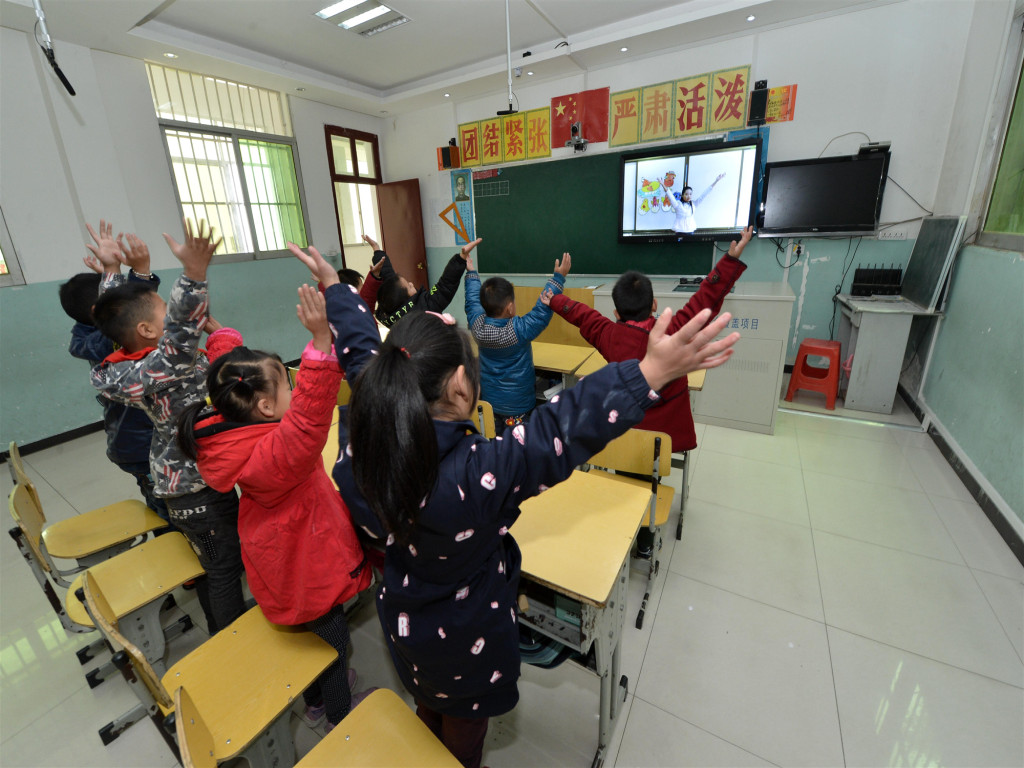Online learning may solve rural teacher shortage


"In the past, rural students such as these used textbooks that had not been updated for a long time and their language teachers spoke very poor English," she said.
Wu Xingzhen, principal of Xinxing Primary School, said the real-time classes mean students can easily interact with the teachers. "It is like they are in the same classroom," she said, adding that the students are thrilled when they win praise for answering questions correctly.
Most students take online classes at least once a week, which has helped them achieve better grades and become more confident in expressing their views and participating. Moreover, remote tuition is a highly effective way of sharing high-quality educational resources and providing an accurate, personalized teaching service, she added.
Wu pointed out that she also benefits from the classes, because she hands over the more difficult English classes to the native speaker, but remains in the classroom to encourage the students and maintain order.
"Now, my students are gaining more confidence - they're getting a window on the outside world through these online classes," she said.
Growing practice
A number of education providers have launched free platforms to provide rural students with a wider range of educational resources.
Last year, the TAL Education Group in Beijing launched the Xiwang Online Education Public Welfare Platform where experienced teachers from China, many in large cities, provide free classes across a range of subjects. The platform also gives students the opportunity to study subjects their schools are unable to offer.
Man Chao, senior director of TAL's corporate social responsibility department, said the platform aims to empower rural students by helping them acquire the latest knowledge and skills so they will fit easily into urban society.
"In rural schools, there are teachers who teach well and there are others who don't. Some schools don't offer subjects such as music or art because they can't get teachers for them," he said. "Now, thanks to the internet, we can actually do something about this."
The development has given the students - many of whom had very limited access to education and resources before - more confidence, according to Man. "When they interact with city kids, they don't feel any different," he said.
The classes have helped the children to develop online research skills and they have also learned to build PowerPoint presentations.
Online tuition also accords with the Ministry of Education's strategy of connecting rural schools with "open and excellent teaching resources". By 2016, about 87 percent of primary and middle schools had access to the internet, according to the ministry.




































